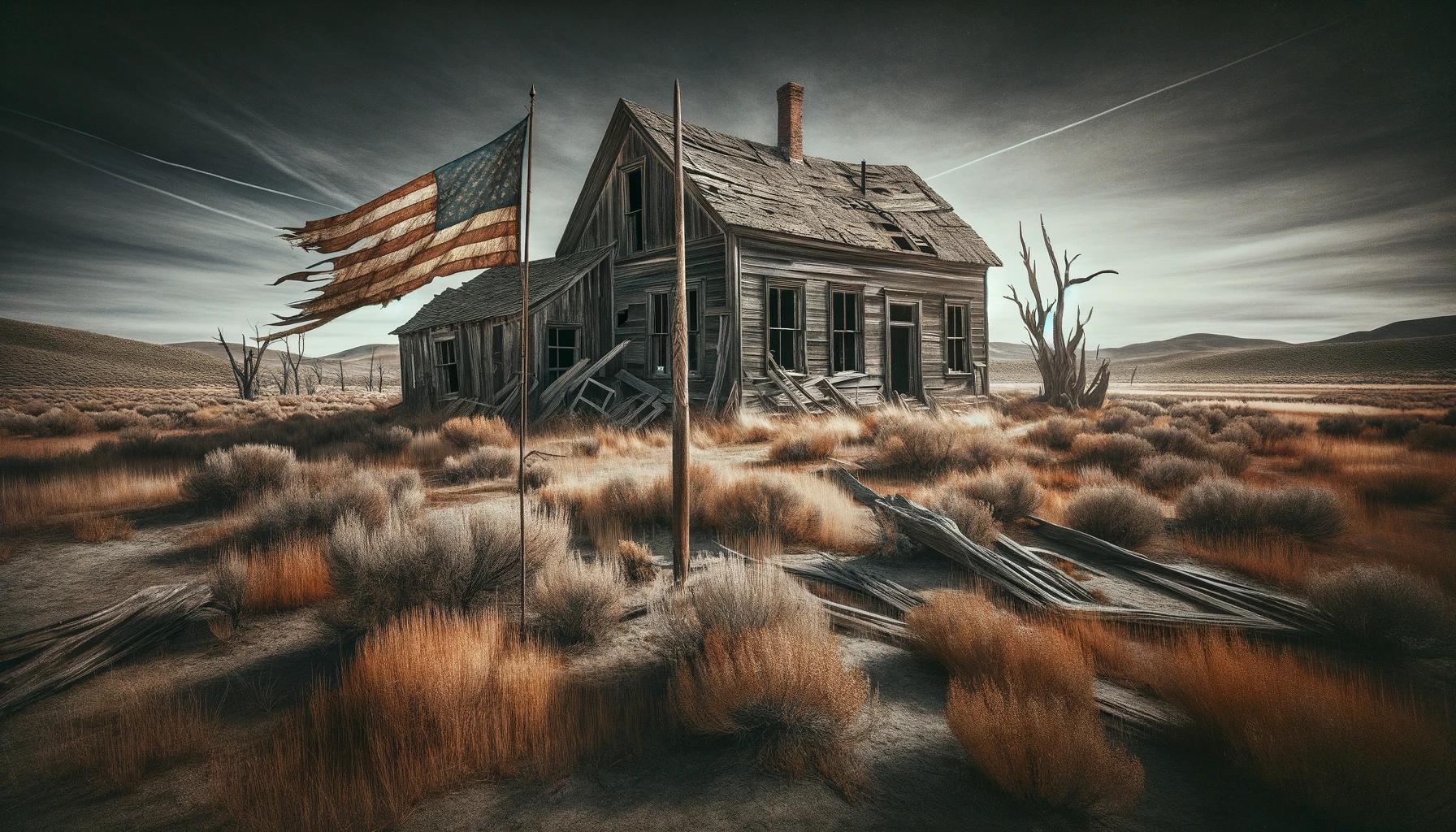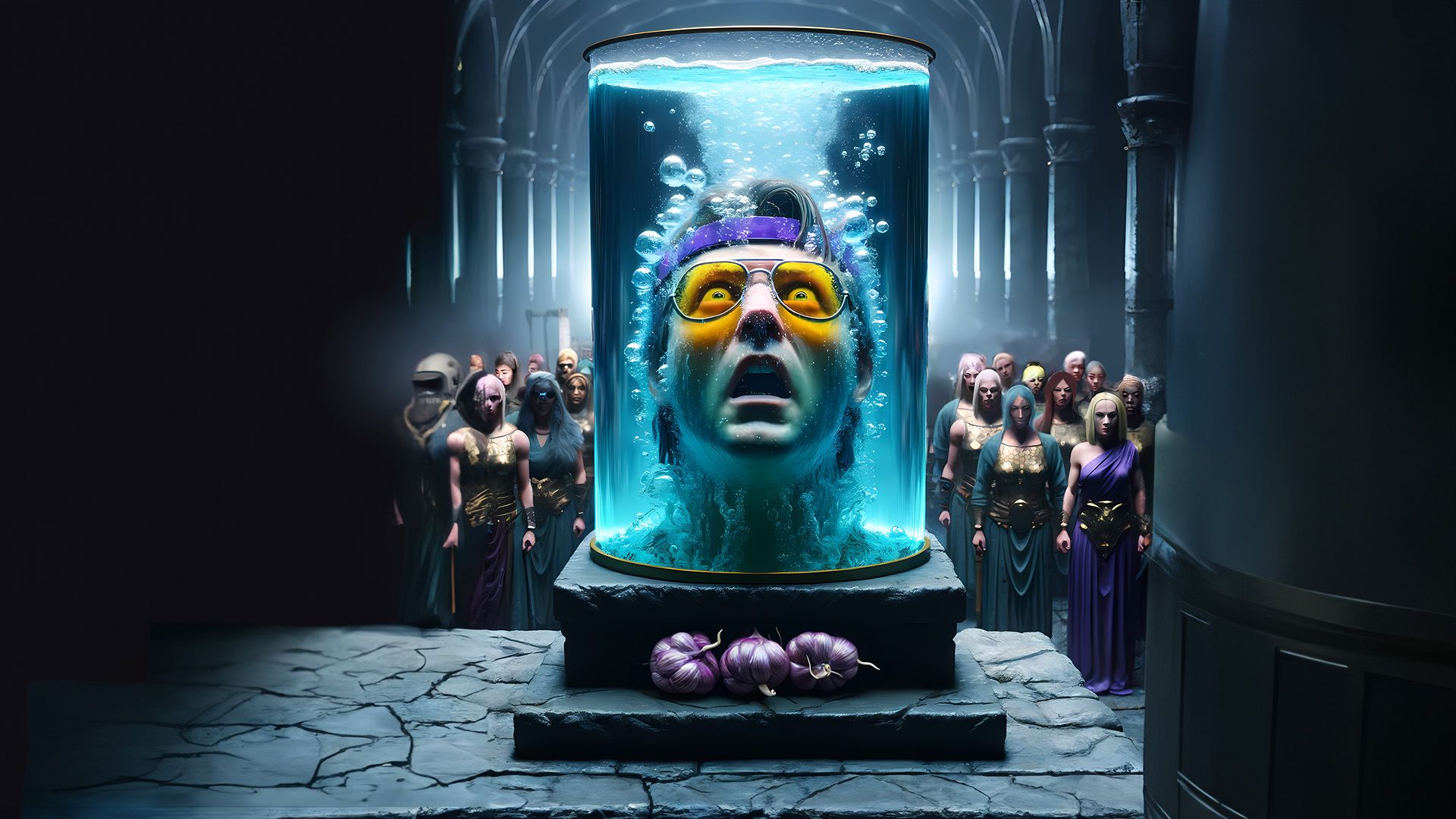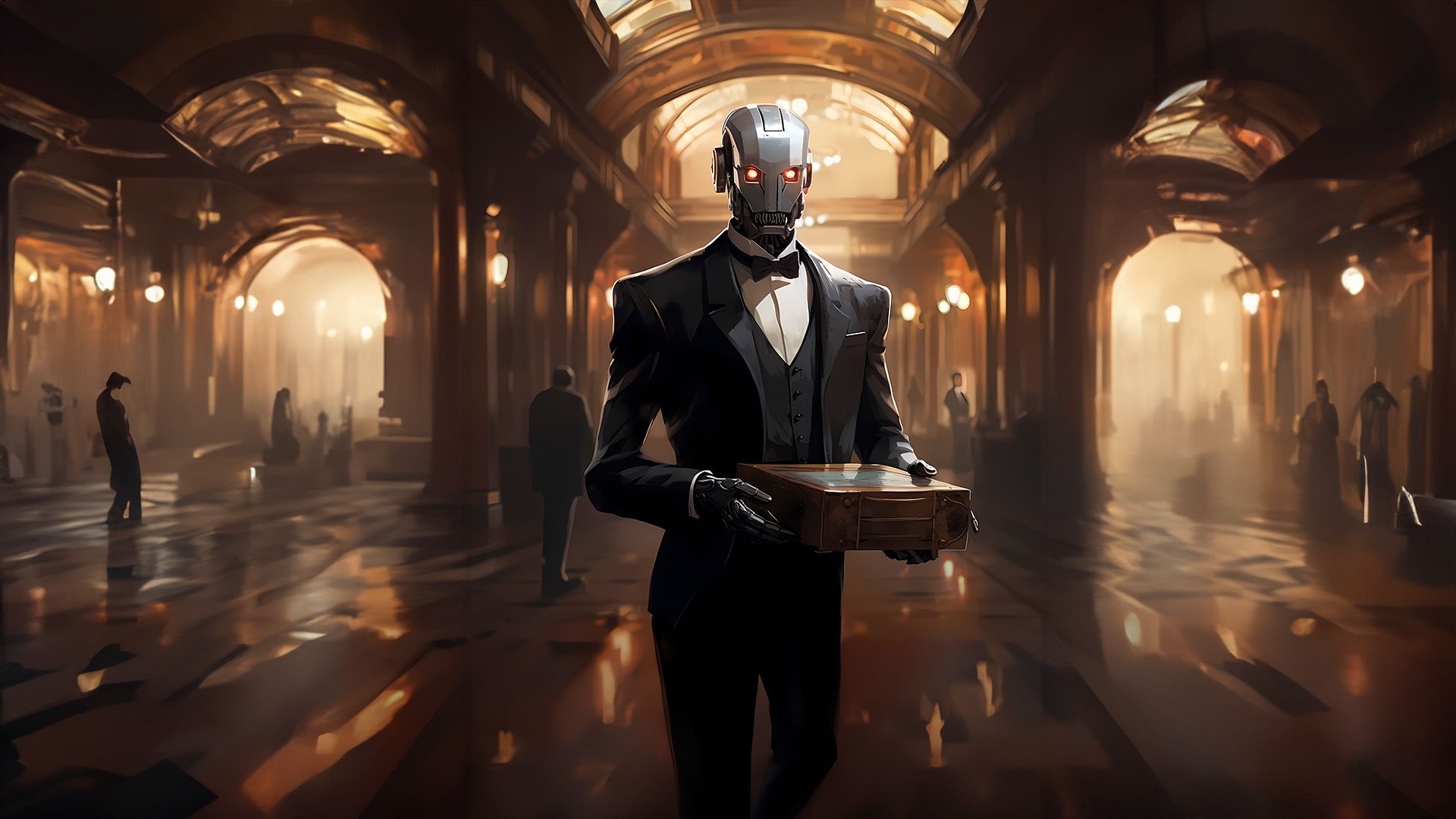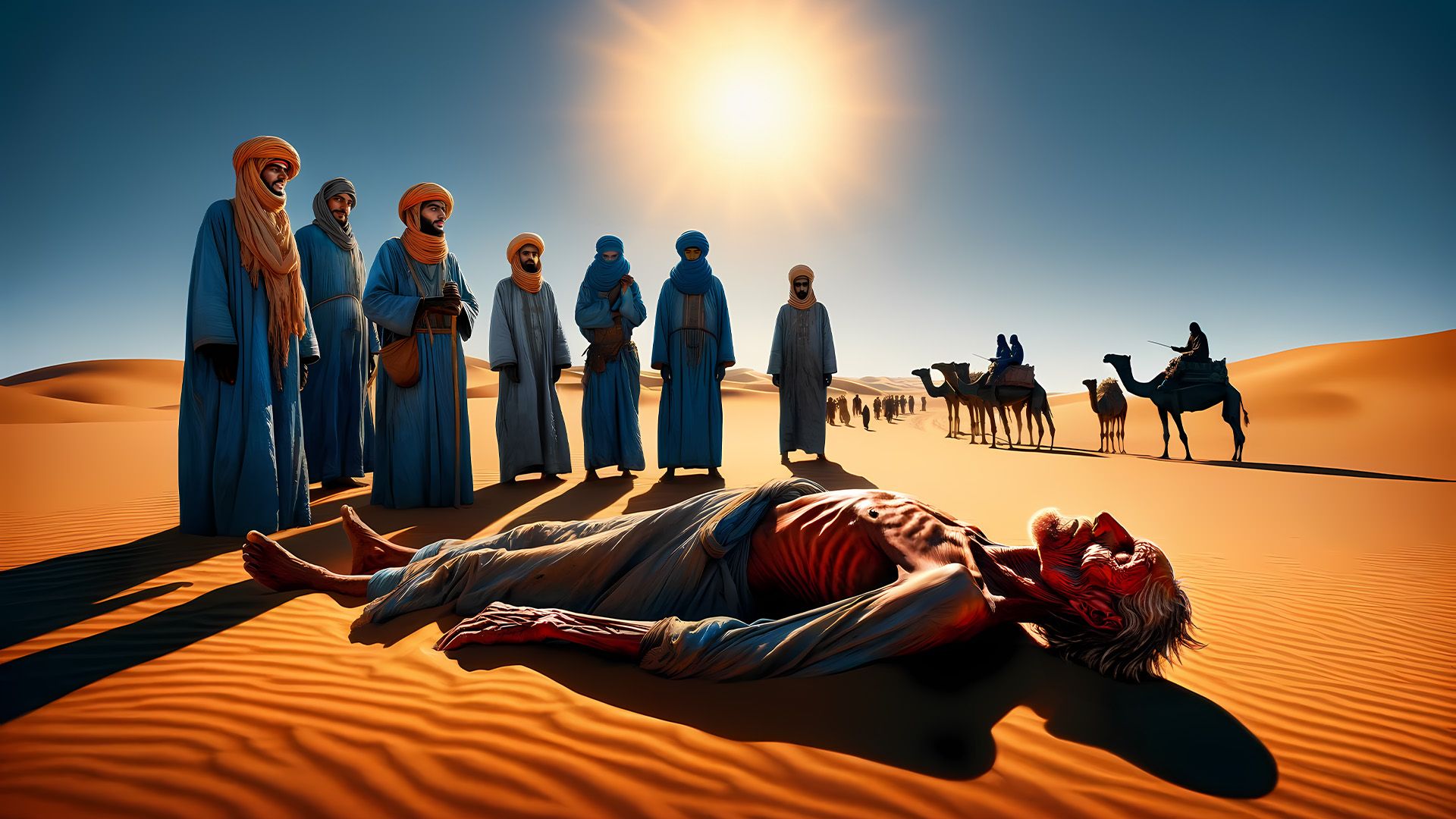·Mickey Moss · fiction · 11 min read
The US of A 2120
It’s amazing how effective the government can get when taxation becomes effectively voluntary; a fee for service model essentially. And with the budget surplus amendment, the treasury now has a growing hoard to leverage with private public partnerships - keeping infrastructure on the cutting edge without the need for onerous tolls or taxes. People pay for what they use.

Journal Entry 31 October 2120
I woke up feeling refreshed. Every day is an opportunity for gratitude now that we are free. Every day is a new opportunity to unlearn things we thought we knew about how the world worked. Our minds (and our money) were a prison in the old world. We thought the Central Bank’s digital currency provided security and protected us, but I now realize more every day that it was all about control. Adjusting to this new system has been hard work. I am still learning, but it’s finally starting to pay off.
We’ve been new immigrants in the land of opportunity for a few months now. I can’t believe how far we’ve gotten, and so quickly too. It’s amazing how much the locals respect hard and honest work. I remember my grandpa waxing poetically before his death about how things used to be. I never believed him until we made the plunge and moved to the new promised land.
Today is (finally!) the day when I get to renegotiate my salary at work; an annual celebration of the anniversary of our monetary system. This year is the 112th. Productivity keeps increasing, so everything keeps getting cheaper. The deflation rate was nearly 15% this year, though I don’t think I’ll give up all those gains in purchasing power to the company. I love having the agency to negotiate my value. It felt like everyone was a government employee by the time we left our former home; income was based on working age with no opportunity for negotiation.
The economy just runs here. I think it used to be called “Austrian Economics,” whatever the hell that means. They just call it “economics” now. Apparently, Austrian economics started with a group of people in a country called Austria. The history books say Austria was part of Europe, which was once home to some of the most powerful empires in human history. A strange thought, considering it is now a vast expanse of crumbling infrastructure, slowly being reclaimed by nature.
Grandpa told me about a global pandemic back in the 2020s, when he was just a little kid. Europe just never truly recovered. The environmentalists finally got what they wanted - degrowth was alive and well - until there was almost no one left to enjoy it, if you can call what they went through enjoyment.
I landed a job at the energy bank as a nuclear engineer fairly quickly after we came here. I keep the fusion reactors running smoothly, though at this point it doesn’t take a whole lot of monitoring with technology that’s pushing 60 years old. The gentle warmth used to be concerning considering the 100 million degree temperatures contained behind the walls of tungsten and beryllium alloys. I am reassured however, by a lengthy track record after the breakthrough scientists had in electrostatic confinement throughout the 2040s. This is relatively old tech now, though they somehow keep making it more and more efficient in the research labs on site. The real interesting thing to me is how we are part-bank now as well.
I’m working hard learning how we use special machines to balance our energy outputs. The machines process all of the transactions and “mine” the new digital currency issuance, but that part is ending in 20 years or so. I’m still learning how it all functions. What I do know with certainty, though, is that I don’t pay for electricity anymore and the digital payment system works every time.
It’s interesting how transaction fees alone are enough to keep the plant running and providing energy for free. We might have to eventually start charging for electricity consumption but it certainly won’t be much. Work streams me sats as I work throughout the day. No more waiting for paychecks. No more negative interest rates for trying to save. No more inflation. We can finally look forward to a better future for our family. We can finally start building wealth.
Other power production facilities use their excess power for other services like water desalination. They fund their operations by selling the fresh water to farmers pushing the boundaries of what was once thought to be impossible. Livestock graze on cover crops planted between neat rows of heirloom vegetables and grains. The trees planted among the farmlands give shelter to the plethora of birds who feast on the bugs. It was once called regenerative farming, as people tried to fix the old system back home. Well, they embraced it wholeheartedly here and have never looked back. I heard they once used to envelop the lands in poison to kill bugs and weeds and make the plants grow better. Seems to me like the cow droppings do a pretty damn good job of that, for free. And once they’ve lived their long life of luxury on the farm fertilizing our crops, we get to enjoy grass-fed steaks.
In the mornings I’m able to kiss my kids goodbye before they begin their walk to school, an act which had once been unthinkable in the crime ridden hell that we escaped from. It’s almost unbelievable how little crime there is here, likely attributable to the complete lack of poverty. Without the free income and money printing, everything just keeps getting cheaper and better. I admit, there is still a pretty stark degree of inequality, but it seems like people are inspired by it rather than oppressed. It’s really a miracle after what we were subjected to as kids; the aspirational culture has been enlightening.
The schools are an incredible development, tailored to the individual. Classes are mostly taught by AI at the kids’ own pace, overseen by professors and social workers. The kids routinely take recess breaks to play and exercise, with holistic health practices and social skills put on the same level of importance as everything else. I think the balance and individualized approach is really helping the kids develop faster.
I remember growing up in a classroom packed with unmotivated students, taught by teachers who could barely tolerate what they were doing. If you couldn’t keep up, it didn’t matter. Everyone always passed. Everyone always moved on to the next level. It was as if we were moving in slow motion along an assembly line, doomed to a life of another soulless cog in the authoritarian machine. I think that was by design, to keep us from thinking critically, to keep us from seeing the truth.
Back in the homeland, we realized too late that the border walls were no longer about keeping people out. Our country became a prison. It should have been obvious when they started constructing a wall along the northern border with Canada, but we felt secure with our monthly government subsistence allotments. That security made us complacent. It also turned us into slaves. Ironically, we escaped through the same paths that people would use to sneak into the country so many years ago on the southern border. How the tides had turned. I didn’t even know how to hope back then, but the novelty of becoming an immigrant has revitalized us.
When this country was reformed, they adopted the original American Constitution - a document adopted from the original founding fathers of America. They ended up making some changes. Their goal was to rewrite the Constitution in more modern language to avoid unscrupulous interpretations of the law of the land.
“The right to peaceably assemble, speak and write freely, and practice religion, shall not be infringed either directly, or through corporate proxies on behalf of any government entity.”
“The right for people to purchase, keep, carry, and bear arms shall not be infringed.”
“The right to privacy shall not be infringed whether digital, analog, or any other means that do not yet exist. The government will only conduct searches with the granting of a warrant, under reasonable suspicion via evidence of a crime as determined necessary through a jury of their peers.”
The refinement made it nearly impossible for the government to grow without consensus or consent. We are told the document is not to empower the government, but rather limit it. The individual is said to be the smallest minority here, with individual rights and freedoms to be explicitly protected above all. It’s no wonder the economy is developing at such a rapid pace. It has done so for decades now.
Interestingly, the caveat in Article I of the US Constitution was stricken from this document. That’s; the one allowing Congress to make any laws that were necessary and proper. It had been considered too open-ended; facilitating the same conditions in which the Constitution had originally become largely irrelevant. But that was in the past. If Congress wants to pass bills, they must pass them one at a time, utilizing the arduous process of Constitutional Amendments.
The Supreme Court rulings are respected as law and enforced by the Executive branch. If politicians and appointed officials alike step outside of their enumerated powers, they are promptly impeached and ejected from office. Interestingly though, politics don’t matter all that much anymore with the lack of power at the federal level. I guess that’s a benefit of their inability to print money at will with a central bank.
It’s amazing how effective the government can get when taxation becomes effectively voluntary; a fee for service model essentially. And with the budget surplus amendment, the treasury now has a growing hoard to leverage with private public partnerships - keeping infrastructure on the cutting edge without the need for onerous tolls or taxes. People pay for what they use.
The government runs a lot like a business at this point. It’s a refreshing change of pace. When we left our homes to come here, the central bank was in a constant state of quantitative easing. They created money out of thin air to buy government debt - no limits on spending, no limits on what the government could do. As the prices rose, they would just give us more money, but it was never enough. We always seemed to be falling behind. I felt desperate almost every day.
Healthcare here is effectively free. Without all the onerous regulation, true innovation was allowed to flourish. There are clinics at nearly every corner, leveraging AI and advanced robotics to not only treat people in the cheapest and most noninvasive ways, but to also prevent illness before they even happen. I pay a small monthly fee for the family and me, and as long as we show up every few months for a scan and blood test, our fees continue to drop, year after year. They say the savings from preventive medicine pay for nearly all the treatments in the country now, and with the life expectancy going up in spurts every few years, that’s great news. Thankfully the birth rate continues to rise as well so us old people don’t take over the world.
Every day I spend here makes me feel stronger. I feel powerful. I feel valued. The suffering we experienced at the hand of our former government seemed trivial at the time but I realize now it was designed to break the spirit, to dissolve one’s sense of self, one’s sense of independence and aspiration. “Sharing is caring,” they would tell us, but a gesture is meaningless when forced at the barrel of a gun. I’m able to give to charity now. Reciprocal Altruism is what I think they call it; sort of a societal insurance plan if you ever fall down on your luck. Those who receive the charity work quickly get back on their feet and replace the funds they received, knowing full well that it was their neighbors and friends who kept them going in their time of need.
As I breathe the fresh air standing on my balcony this evening, I watch the sun paint the landscape and reflect. The beautiful display of color made all the more meaningful in this land of freedom and adventure; and as I watch the sun begin to sink behind Mount Kilimanjaro, the waves of gratitude return. It doesn’t feel like a constant struggle just to get by anymore. People seem to walk and talk slower here. People plan for the future. There is an optimistic hope for the future that did not exist where we came from. I am thankful for our new home and new lease on life in The United States of Africa, land of the free, home of unbounded opportunity.



